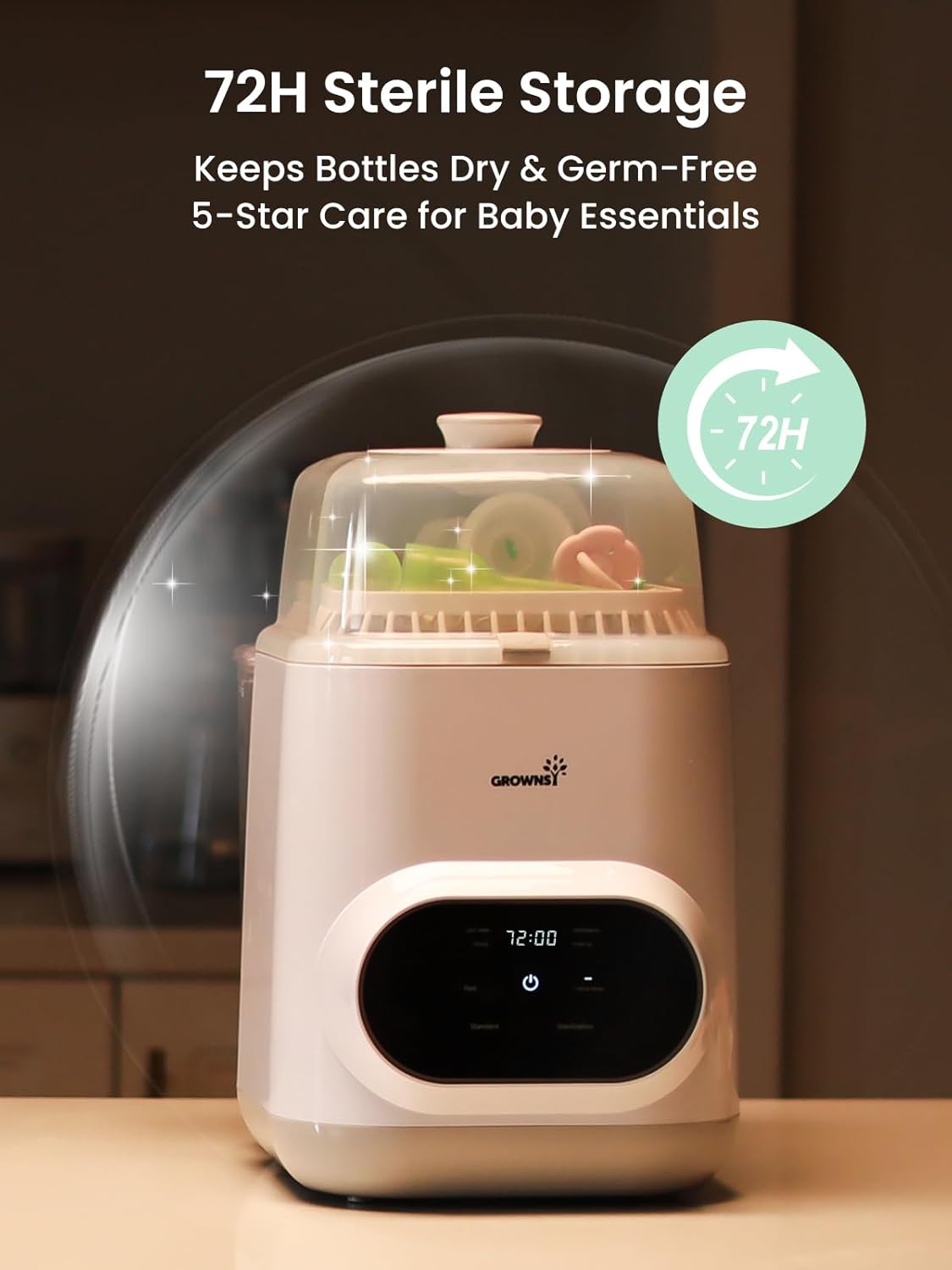Is Your Dishwasher the Secret to Sparkling Clean Baby Bottles?
As a new parent, ensuring your baby’s bottles are spotless and hygienic is a top priority. Baby bottles are not just containers; they are crucial for your child's health and development. Many parents often find themselves caught in the dilemma of how to effectively clean these essential items. Hand washing can be time-consuming and tedious, leading many to wonder: Is it safe and effective to wash baby bottles in the dishwasher? In this article, we will explore the safety of using a dishwasher for baby bottles, the effectiveness of this method compared to traditional hand washing, and practical tips for the best results. By the end, you will have a clearer understanding of how to keep your baby’s bottles sparkling clean.

The Safety of Washing Baby Bottles in the Dishwasher
When considering the safety of using a dishwasher for baby bottles, several factors come into play. One of the primary concerns is the high temperatures that dishwashers can reach. Most dishwashers operate at temperatures that can effectively kill bacteria, which is a significant advantage. However, some baby bottles, especially those made from certain plastics, may not withstand these temperatures without warping or releasing harmful chemicals. Health experts recommend checking the manufacturer's guidelines to ensure that your bottles are dishwasher-safe. Additionally, it’s important to ensure that the dishwasher is cleaned regularly to avoid any buildup of food particles or bacteria that may contaminate the bottles during the washing process. A friend of mine, who is a new mom, shared her anxiety over using the dishwasher initially but found peace of mind after thoroughly researching her bottle's material and the dishwasher settings.
Materials and Their Dishwasher Compatibility
Baby bottles come in various materials, each with its own dishwasher compatibility. Plastic bottles are lightweight and convenient, but not all plastics are created equal. Look for bottles labeled "BPA-free" and check for dishwasher-safe indications. Glass bottles are generally more durable and can withstand high temperatures, making them a safe choice for the dishwasher. Silicone bottles are also dishwasher-safe, but care should be taken not to expose them to extreme heat. Always refer to the manufacturer's care instructions to ensure that you are washing your bottles correctly. It’s worth mentioning that some parents have opted for glass or silicone bottles to eliminate concerns about plastic degradation. My friend found that switching to glass bottles gave her confidence in the cleaning process.
Effectiveness of Dishwashing Baby Bottles
When it comes to the effectiveness of cleaning baby bottles, dishwashers have both advantages and drawbacks. Dishwashers use high temperatures and strong water jets to remove food residue and bacteria, which can be more effective than hand washing. However, the effectiveness can depend on various factors such as water temperature, detergent type, and the chosen washing cycle. For optimal cleanliness, it’s advisable to use a high-temperature setting and a detergent that is free from harsh chemicals. Additionally, pre-rinsing the bottles can help dislodge any stubborn residue before they go into the dishwasher. Parents should also be mindful of how they load the bottles; they should face downward to allow for thorough cleaning. A conversation with a fellow parent revealed that she always rinses her bottles before loading them, which she believes enhances the cleaning process in the dishwasher.
Common Concerns and Solutions
Despite the benefits, many parents express concerns about potential residue, lingering odors, and the effectiveness of dishwashing against bacteria. To address these issues, it’s essential to choose a high-quality detergent and ensure that your dishwasher is functioning correctly. Regular cleaning of your dishwasher can prevent buildup that might transfer onto your bottles. If odors persist, a rinse with vinegar or lemon juice can be helpful. Additionally, some parents worry about the possibility of milk fat or formula residue remaining after washing. To combat this, using the hot wash cycle and ensuring that bottles are adequately arranged for optimal water flow is crucial. I remember a friend’s experience where she discovered that using a designated bottle rack in the dishwasher significantly improved cleaning results, solving her residue concerns.
Best Practices for Washing Baby Bottles in the Dishwasher
To ensure that baby bottles are washed safely and effectively in the dishwasher, consider these best practices: First, always check the manufacturer’s guidelines for dishwasher compatibility. Load bottles upside down to prevent water from pooling inside. Use a high-temperature setting and a gentle detergent that is safe for baby items. It’s also wise to wash bottle nipples and other small parts in a separate mesh bag to prevent them from getting lost or damaged. Lastly, regularly clean your dishwasher to maintain its efficiency and hygiene. These simple steps can make a significant difference in the cleanliness of your baby’s bottles and give you peace of mind.
Ensuring Safe and Effective Cleaning of Bottles
In summary, washing baby bottles in the dishwasher can be a safe and effective method if done correctly. By understanding the safety aspects, the effectiveness of this cleaning method, and implementing best practices, parents can ensure that their baby’s bottles are not only clean but also free from harmful contaminants. As you navigate the journey of parenthood, making informed decisions about bottle hygiene will ultimately contribute to your child’s health and well-being. Embrace the convenience of the dishwasher while prioritizing safety and cleanliness, and you’ll find that this modern tool can be a valuable ally in your parenting toolkit.








